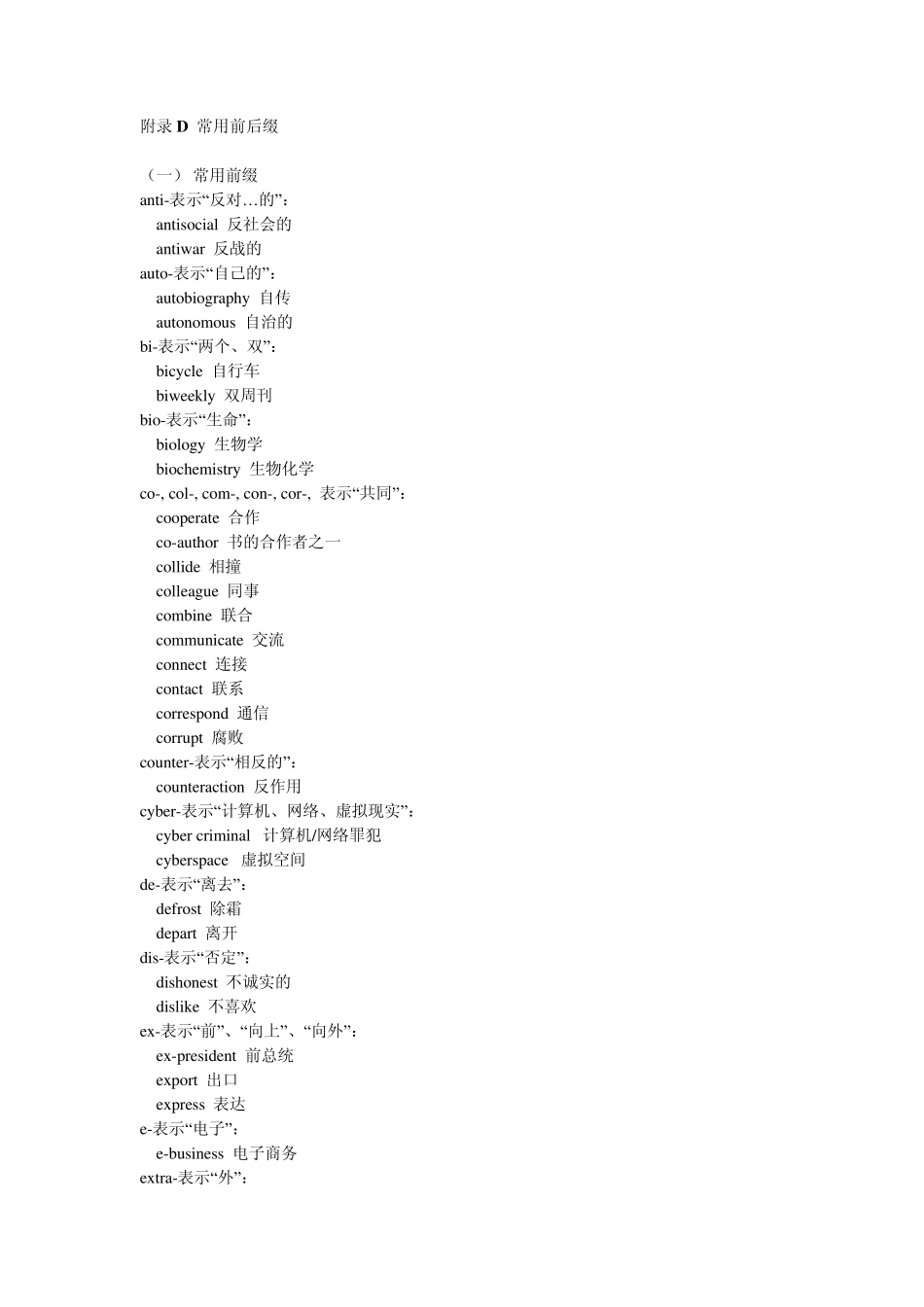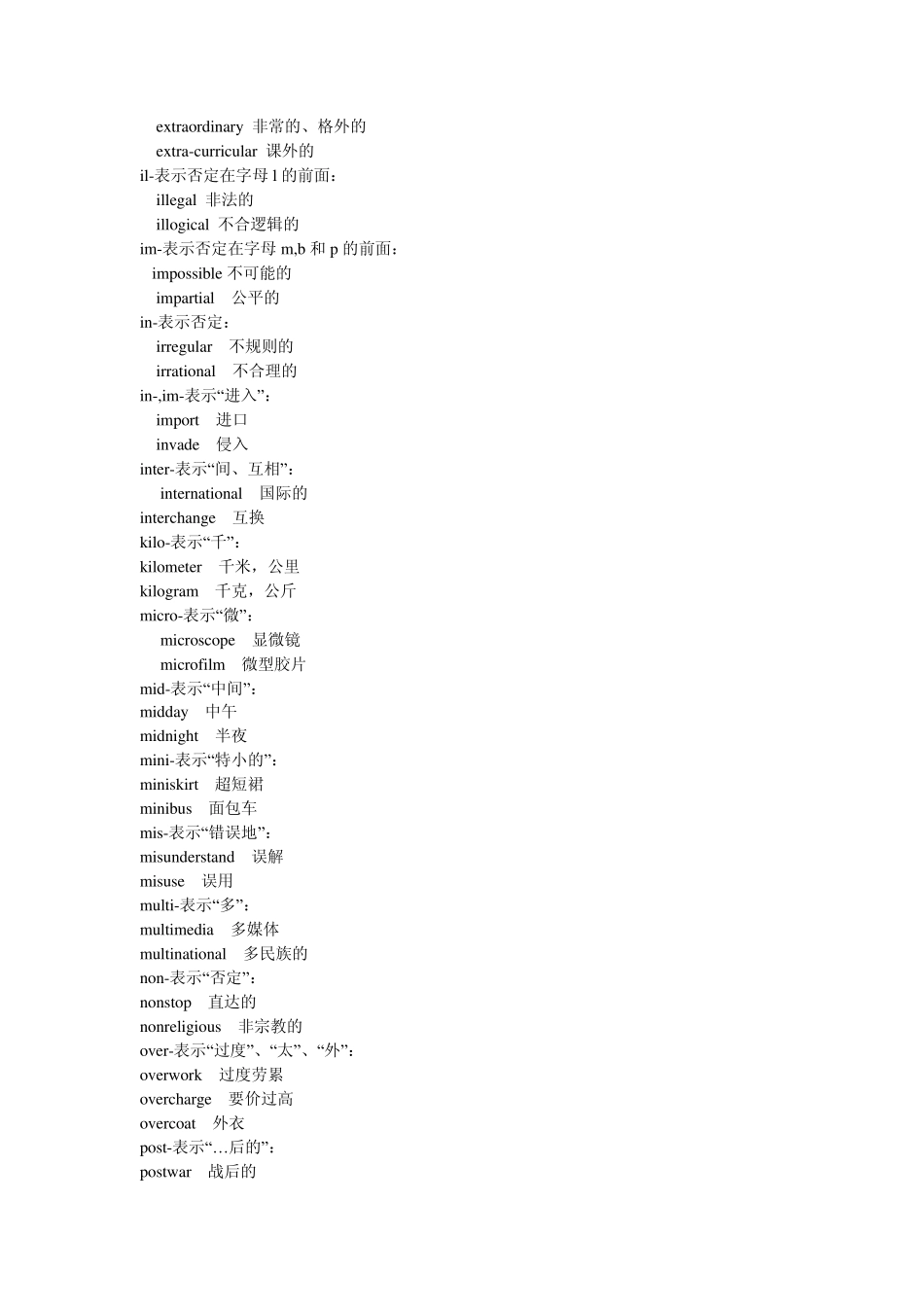附录D 常用前后缀 (一) 常用前缀 anti-表示“反对…的”: antisocial 反社会的 antiwar 反战的 auto-表示“自己的”: autobiography 自传 autonomous 自治的 bi-表示“两个、双”: bicycle 自行车 biweekly 双周刊 bio-表示“生命”: biology 生物学 biochemistry 生物化学 co-, col-, com-, con-, cor-, 表示“共同”: cooperate 合作 co-author 书的合作者之一 collide 相撞 colleague 同事 combine 联合 communicate 交流 connect 连接 contact 联系 correspond 通信 corrupt 腐败 counter-表示“相反的”: counteraction 反作用 cyber-表示“计算机、网络、虚拟现实”: cyber criminal 计算机/网络罪犯 cyberspace 虚拟空间 de-表示“离去”: defrost 除霜 depart 离开 dis-表示“否定”: dishonest 不诚实的 dislike 不喜欢 ex-表示“前”、“向上”、“向外”: ex-president 前总统 export 出口 express 表达 e-表示“电子”: e-business 电子商务 extra-表示“外”: extraordinary 非常的、格外的 extra-curricular 课外的 il-表示否定在字母 l 的前面: illegal 非法的 illogical 不合逻辑的 im-表示否定在字母 m,b 和 p 的前面: impossible 不可能的 impartial 公平的 in-表示否定: irregular 不规则的 irrational 不合理的 in-,im-表示“进入”: import 进口 invade 侵入 inter-表示“间、互相”: international 国际的 interchange 互换 kilo-表示“千”: kilometer 千米,公里 kilogram 千克,公斤 micro-表示“微”: microscope 显微镜 microfilm 微型胶片 mid-表示“中间”: midday 中午 midnight 半夜 mini-表示“特小的”: miniskirt 超短裙 minibus 面包车 mis-表示“错误地”: misunderstand 误解 misuse 误用 multi-表示“多”: multimedia 多媒体 multinational 多民族的 non-表示“否定”: nonstop 直达的 nonreligious 非宗教的 over-表示“过度”、“太”、“外”: overwork 过度劳累 overcharge 要价过高 overcoat 外衣 post-表示“… 后的”: postwar 战后的 postgraduate 研究生 pre-表示“…前的”: prewar 战前的 prehistory 史前的 re-表示“重新、再”: rewrite 重写 reform 改造 semi-表示“半”:...


